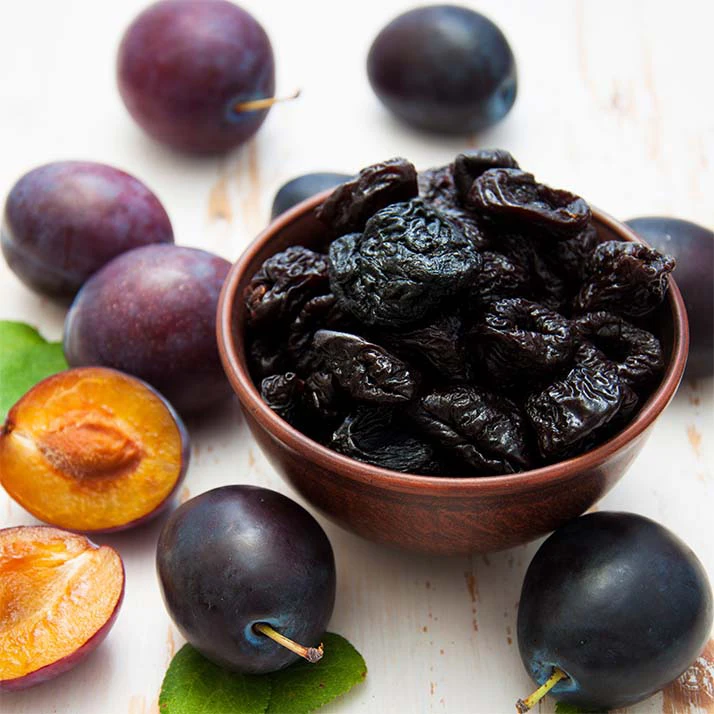Prunes: A Sweet Solution to Improve Bone Health in Postmenopausal Women
Prunes: A Sweet Solution to Improve Bone Health in Postmenopausal Women

In response to declining estrogen levels during menopause, postmenopausal women develop increased vulnerability when it comes to fractures through low bone density caused by osteoporosis. Nonetheless, the application of prune intake for managing these issues is proving consequential according to the latest studies titled "The Role of Prunes in Modulating Inflammatory Pathways to Improve Bone Health in Postmenopausal Women." As more studies are conducted on its potential benefits, it is becoming increasingly apparent that prunes could have valuable implications for postmenopausal women's bone health. The investigation under scrutiny delved into the plausibility of prunes aiding the bone health of postmenopausal females. It concentrated on how prunes exhibit properties that are anti-inflammatory and can regulate paths that contribute to bone loss. Through this study, multiple bioactive compounds within prunes like polyphenols and soluble fiber were identified for their aptitude in suppressing inflammation and oxidative stress.
effectively boost bone mineral density
Maintaining healthy levels of bone mineral density (BMD) is essential in preventing the loss or deterioration of bones over time. Based on recent findings, incorporating prunes into one's dietary regime can effectively boost BMD through its anti-inflammatory properties that help protect against cell damage and enable regeneration processes within bones. Additionally, regular intake can mitigate risk factors associated with chronic inflammation – a significant driver in instigating decreased BMD levels. The reduction of pro-inflammatory cytokines production due to the presence of bioactive compounds is among the primary mechanisms by which inflammation can be reduced using prunes, according to scientific investigations.
Furthermore, there are indications that prunes support bone remodeling since they assist in increasing osteoblasts activity and decreasing osteoclasts activity by participating actively in this process. By reducing inflammation and supporting bone remodeling while increasing BMD levels in postmenopausal females, research shows that incorporating prune consumption into daily diets may improve general bone health. Beginning with five or six pieces of this fruit each day as a baseline would be beneficial; however, quantity can be tailored accordingly later on. Uncomplicated and wholesome snacking is achieved with the use of prunes. To improve bone health in postmenopausal women, incorporating prunes into the diet has shown promising results. A sensible way to enjoy the sweet fruit is by mixing it with yogurt or adding it on top of oatmeal or cereal for additional dietary fiber. For a unique flavor punch and extra texture in your salads, chop up some prunes as toppings! If baking is more your style, use prunes as a substitution for some --or even all-- sugar content when making cakes or cookies. Finally, blend them well with other fruits in making smoothies for a refreshing treat! A potential strategy for promoting bone health and decreasing the risk of developing osteoporosis may involve integrating prunes into your daily diet. Consulting with a qualified medical professional is always wise when making significant modifications to your eating habits, particularly if there are present health conditions or concerns.
Adv. Nutr 2022 10 02; 13(5):1476-1492.



